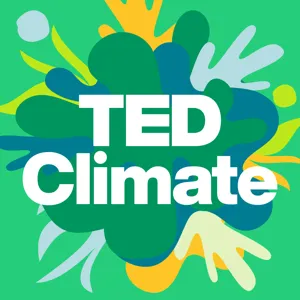Podcast Summary
Creating an Affordable, Sustainable, and Fair Food System: Social entrepreneur Nnedidi Okonekwo Nweli advocates for changes in food production, distribution, and growth to create an affordable, sustainable, and fair food system. Innovation, collaboration, and determination are key to addressing complex issues.
Creating an affordable, sustainable, and fair food system is achievable according to social entrepreneur Nnedidi Okonekwo Nweli, but it will require significant changes in how we grow, produce, and distribute food. Meanwhile, in the business world, growing companies are leveraging tools like Canva for productivity and Slack for efficient communication and automation. In the realm of water management, the fate of the Colorado River may rest on the shoulders of a 28-year-old as various states work towards a compromise. Personally, Ndidi, who means patience in Igbo but admits to being impatient herself, shares her passion for agriculture and how she pursued a career in business instead. Through these various stories, we can glean the importance of innovation, collaboration, and determination in addressing complex issues.
The true cost of food in the US is double the annual food expenditure due to health and climate issues.: The food system is value destroying and contributes significantly to climate change. Urgent action is needed to modify how we grow food, reduce waste, and make the system more sustainable and equitable.
Our food ecosystem is broken and causing significant costs to health, equity, and the environment. During the 2007 world food crisis, the interconnectedness of various factors such as oil prices and food prices became apparent. Today, the situation has worsened, and the Rockefeller Foundation's research indicates that the true cost of food in the US is actually double the annual food expenditure due to health and climate issues. The food system is value destroying, and urgent action is needed from multiple perspectives. From a climate lens, we must modify how we grow food and reduce food waste, as our food ecosystem is a major contributor to climate change. We have the technology and knowledge to address these issues, but we're not using it. Exciting examples of progress include the Songhai Center in Benin Republic, which educates young Africans on regenerative agriculture and zero waste production, and BioLoop, a company that transforms food waste into fish feed and soil supplements using black soldier fly larvae. Through my work with Sahel Consulting, we're demonstrating that farmers can increase yields without harming the environment. It's time to take action and make our food system more sustainable and equitable for all.
Promoting Access to Healthy and Affordable Food: Governments, private sector, farmers, and individuals must take action to incentivize behavior change and ensure access to nutritious food for all. Reducing food waste and implementing sustainability policies can also contribute to a healthier environment and healthier lives.
We need to prioritize access to healthy and affordable food for all, while reducing food waste and promoting sustainable farming practices. Africa provides inspiring examples of communities living in harmony with the land and consuming healthy diets rich in fiber. However, one-third of the world's population cannot afford a healthy diet, and the COVID-19 pandemic has exacerbated this issue by making unhealthy food more affordable. It's crucial that governments, private sector, farmers, and individuals take action to incentivize behavior change and ensure access to nutritious food. Additionally, reducing food waste at home and implementing sustainability policies can contribute to a healthier environment and healthier lives. Innovative social enterprises, like mDoc, are using technology to help urban populations shift towards more traditional diets and improve their health. By working together, we can make a significant impact on global food systems and create a healthier world for all.
Scaling healthy food interventions and holding companies accountable: Define healthy food, prioritize it in programs, support SMEs, and empower communities for sustainable agriculture and healthy food.
Scaling interventions to promote healthy food and holding private sector companies accountable for sugar and salt content are crucial. We need to define healthy food based on plant-based diets, low salt, and low sugar, and prioritize it in school feeding and public procurement programs. Small and medium sized enterprises (SMEs) are essential in the food ecosystem, creating jobs and being innovative, but they've been disproportionately affected by the pandemic. Supporting SMEs, especially women-owned businesses, through an enabling environment, catalytic financing, and scaling efforts, can empower communities and create change agents for sustainable agriculture and healthy food.
Take Action for a Better Food System: Examine your food choices, ask questions, and advocate for positive change in the food ecosystem.
As consumers, we have the power to make a difference in the food ecosystem. While patience is important in certain aspects, such as planting seeds and allowing food to cook, it's also crucial to be impatient about the current state of the food system and take action towards positive change. When we eat a meal, we should ask ourselves questions about its origin and journey to our table, and consider the impact on people and the planet. Our choices and voices matter, and we have a responsibility to create a food ecosystem that benefits not just ourselves, but future generations. We will be held accountable for the actions we take today.






